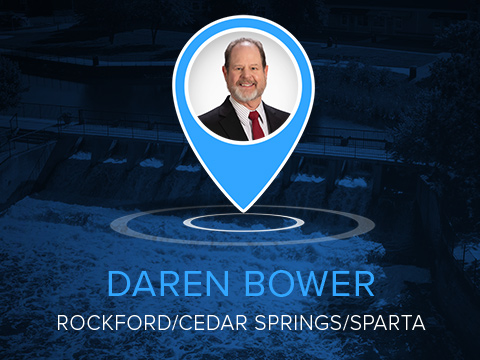CALEDONIA, Mich. — The Great Lakes fishery is a multibillion-dollar operation, attracting anglers from across the country. When a filet from one its five freshwater bodies is served, though, often the rest of the fish — the skin, bones and innards — are thrown away.
There are other options, according to Big O' Smokehouse, a small Caledonia business that recently signed the Great Lakes Fish Pledge, publicly committing to using 100% of its Great Lakes-caught fish. From "head to tail," none of their parts will go to waste.
"When you think of the Great Lakes State and just the bounty that we have here, how do we enjoy that responsibly?" Kendra Higgins, director of sales and marketing, said.
A seafood operation in its fifth generation, Big O' Smokehouse signed the pledge for the future families that will have a hand in the business. "Seeing that through for the next generation is so important to us," Higgins said. "Being able to teach [them] that these fish are vital for the economy and for what we do, our livelihood."

The Great Lakes Fish Pledge was created by the Conference of Great Lakes St. Lawrence Governors & Premiers (GSGP), a group of government leaders chaired by Gov. Gretchen Whitmer. Thus far, 34 companies have committed to its cause, including Big O' Smokehouse and Great Lakes Tinned Fish, a Grand Rapids-based startup.
READ MORE: Great Lakes Tinned Fish revolutionizing fish in Michigan
"There's always going to be fish being caught out of the Great Lakes," Higgins said. "How do we make sure the impact of that fish is seen from head to tail?"
Big O' Smokehouse sources its whitefish from the Great Lakes. For years, it's sent all sorts of fish scraps — whitefish, salmon and more — to farmers. For them, the pledge is more so a promise to innovate. They're already finding more economical ways to make use of what could otherwise be waste.

Salmon skin and excess meat, for example, have now been turned into pet snacks. Bones could be put toward a collagen program. Fish leather is a possibility, too.
"It is edible, technically. It's just not as palatable," Higgins said about fish scales and skin. "How can we turn that product into something that's a little bit more interesting?"
For more on the Great Lakes Fish Pledge and the Conference of Great Lakes St. Lawrence Governors & Premiers (GSGP), click here.













